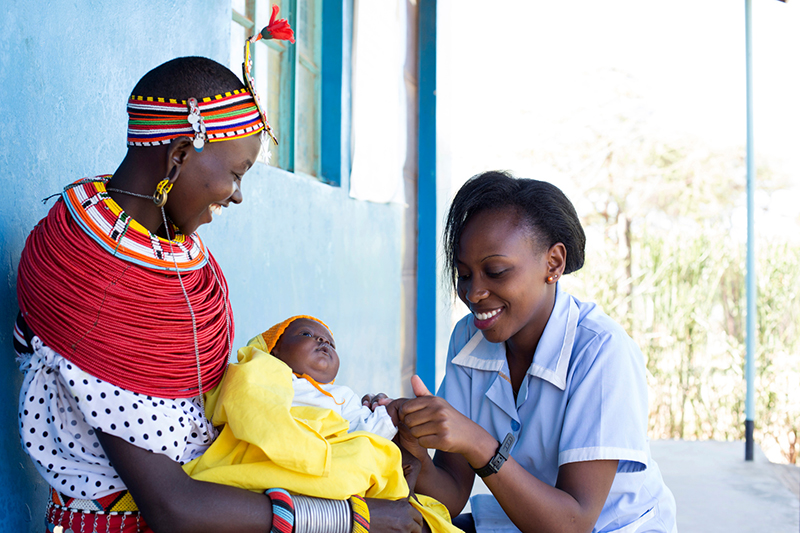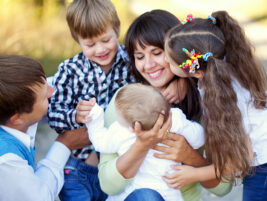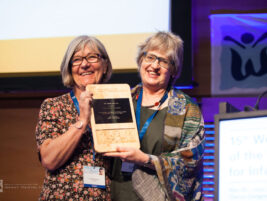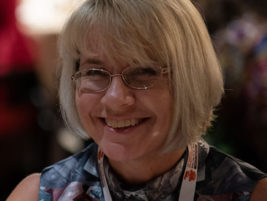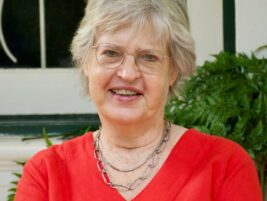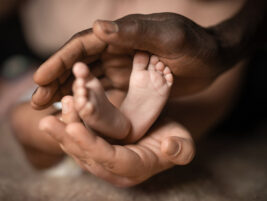Seeing our complex world through the eyes of the infant…and responding…
I would like to acknowledge the traditional owners of the unceded land on which I’m working today. I am on the lands of the Wurundjeri people of the Kulin nation who have cared for this land in Australia, nurturing a continuous culture for many thousands of years. I’d like to honour and pay my respects to Elders past, present, and emerging. Across Australia it is a sad time with the passing last month of Archie Roach, who was an amazing musician, songwriter, and advocate for first Nations People. Archie was one of many Australian First Nations people who grew up separated from their parents and family because of colonialism and oppressive government policy. Archie Roach, through his music and powerful and evocative songs, was able to instil an understanding of country and culture, and of the profound injustice experienced by generations because of the removal of infants and children from their parents and community (‘Took the Children Away’ Roach, A. https://www.youtube.com/watch?v=IL_DBNkkcSE). His words however, do provide hope and positive direction. Archie worked vigorously with First Nations communities and agencies as well as the broader Australian and international communities to try and undo and repair some of these profound injustices. Archie helped us see through the child’s eyes the experience of babies, young children, and their families, suffering trauma through oppression and forcible separation.
Archie Roach, and people of First Nations communities around the world, in North America, Europe, the Middle East, Africa, Asia have much to teach us about the cruelty set upon infants and young children through racism, colonisation and misuse of power. In responding to infants’ emerging awareness of self and any emotional and developmental distress, it behoves us to look both within, and beyond, the “nuclear family” and draw on the resources of the extended family and other key people in the baby’s network of care. Sadly, too often, the emotional and relationship needs of babies seem to be secondary to those of adults.
At our hospital, the Royal Children’s Hospital Melbourne, we are currently reviewing our approach to mental health and well-being in the paediatric hospital context and reviewing what it really means to deliver family centred care. This means real and genuine engagement and cooperation with parents, their representatives, and others with lived experience of mental ill-health and distress. On a recent brief trip to the UK and Europe I was privileged to meet with colleagues in Innsbruck, Austria, who are working closely with children, parents, and their community networks where parents experience mental ill-health (Goodyear et al., 2020). A concomitant challenge for infant mental health clinicians and our adult perinatal mental health colleagues is to develop closer clinical and research collaborations. Miri Keren is leading a group within the World Psychiatric Association to foster just these collaborations.
As professionals working with infants, young children, and their families we are in a unique position to advocate for the best outcome for the social and emotional development of the world’s infants. Across the globe there is intensification of conflicts and war, natural disasters, climate change and long-standing social and racial inequalities. Infants are especially vulnerable in these circumstances (Keren et al., 2019). There are more infants and children as refugees than there has been in living memory. We have an ongoing task to help infants and young children and their parents experiencing these profound inequalities.
How can we support and help infants and their parents towards optimal development?
It may seem like we’re facing an impossible task. But infant mental health as a discipline has made huge developments over the last decades since the first infant mental health world congress was held in Portugal in 1980. Pioneers such as Winnicott, Bowlby, Spitz, Fraiberg, Stern, Brazelton, Lebovici, Trevarthen, Emde and so many others, have set very strong foundations for our work. They observed, researched, and revealed how the baby jumps into their relational world from the very beginning.
It is crucial for us to try and see things through the eyes of the infant. Acting across different modalities, we must provide a voice for the baby and toddler who are in situations of distress and despair. Within the broad membership of WAIMH we have seen some exciting developments in learning, in clinical interventions, training and research.
In a new collaborative webinar training initiative with Infant and Early Mental Health Promotion (IEMHP), a program of SickKids, Toronto, we are privileged to hear from a broad range of current experts in the field of infant mental health. Improving access to training has been a major focus of WAIMH. The WAIMH collaboration with Dr Chaya Kulkarni and her colleagues at Infant and Early Mental Health Promotion and Prof Kaija Puura and Tampere University, has produced the amazing 2022 online seminar series “Laying the Path for Lifelong Wellness” (https://imhpromotion.ca/Learning-Centre/Expert-Lectures/Lecture-Series-2022). We hope you’ve all been able to subscribe and access some of the 15 seminars delivered by exceptional people in our field. From the comfort of my home in Melbourne I have enjoyed hearing the many presenters of the seminar series, who are sharing their thoughts, ideas, research, excitement, passion and above all commitment, to the mental health of infants and families. Alicia Lieberman, Arietta Slade, Diane Philipp, Joy Osofsky and others describe important evidence-based interventions. One powerful common theme is our need to do more to address the profound inequalities which children and families face in many countries around the world. The global Covid-19 pandemic has had severely adverse, ongoing, and unequal impacts on health, psychological and developmental growth of children and families in less well-resourced communities in all our countries.
Relationship trauma and injustice exist in all our communities, and we need to address the impact of social, racial, and economic inequalities. It seems that every country has its own tragic systemic ghosts and shame from the present or distant past, whereby the rights of infants and families have been shattered or violated. The WAIMH Board and the Executive have been working at ways to support such communities. Our colleagues at Zero to Three through the Irving Harris Foundation, previously published some important infant mental health practitioner guidelines, ‘Tenets to Address Social Inequalities and Injustice’. (See Perspectives, 2013 Seymour et al.)
There have been some very innovative and effective interventions addressing the mental health needs of infants and families at risk, in countries less well-resourced, which can provide models to adapt with other communities (eg Suchman et al., 2020).
WAIMH has a working group whose goal is addressing racism and inequality within the infant mental health clinical research, publication, and implementation arena.
Astrid Berg is leading a WAIMH Global Crises group to support our mental health colleagues working with parents and infants in communities affected by the terrifying experiences of active conflict, war, persecution, and natural disaster. The recent floods in Pakistan for example, constitutes high loss of life and huge disruption of the safety and welfare of thousands of infants and families.
The WAIMH Dublin 2023 Congress provides another major opportunity for us to increase our collaborative understanding of the real threats to mental health and development which faces dislocated, traumatised, and frightened infants and their families. We enthusiastically invite you to come to Dublin and share your therapeutic interventions and innovations for infants and families experiencing trauma, loss, and major mental ill-health. (https://www.waimh2023.org/)
In your work with families and communities there will be a wide range of social cohesion and social resources and capital. Within every community there will be infants and parents who are suffering mental ill-health and disturbed emotional development. For the Dublin Congress the Scientific Program Committee is very keen to hear of your work within your community because we can learn from everyone engaged with infants and families. We hope that everyone will feel they can share their work. You can submit presentations through either of the Clinical or Scientific streams. The Congress theme is “Early Relationships Matter: Advancing Practice, Policy, and Research in Infant Mental Health” and we anticipate that the Congress presentations will demonstrate the essential intertwining of each of these three areas.
I had the opportunity recently to spend two weeks in Europe and I met WAIMH colleagues in London, including Dilys Daws, the founder of AiMH UK, from whom I’ve learnt so much about infant parent psychotherapies. I met with other infant mental health colleagues in Cambridge, Zurich, Innsbruck, and Vienna. Cambridge was the venue for the 25th anniversary of the Brazelton Centre UK, “With one voice. How babies around the world are bringing us together”, and the International NBAS and NBO Network Meeting. We had a lot to share, and a lot to catch up on in our exploration of therapy with the newborn baby and parents. Kevin Nugent from Boston who developed the NBO, was honoured. He will be in Dublin next year as a keynote speaker. Other keynote speakers for Dublin are Brenda Jones Harden, David Oppenheim and Nim Tottenham. International travel is now very possible and meeting up in person is an important part of building and maintaining our infant mental health connections and networks.
We look forward to seeing very many WAIMH colleagues and friends in Dublin next year, to hear presentations of your work at the Congress, and to work towards further innovative, equitable, accessible, and effective interventions for infants and families.
Babies depend upon us.
Campbell Paul
President WAIMH
References
Iruka, I. U., Lewis, M. L., Lozada, F. T., Bocknek, E. L., & Brophy‐Herb, H. E. (2021). Call to action: Centering blackness and disrupting systemic racism in infant mental health research and academic publishing. Infant Mental Health Journal, 42(6), 745-748.
Goodyear, M., Zechmeister-Koss, I., Bauer, A., Christiansen, H., Glatz-Grugger, M. & Paul, J. L. (2022). “Development of an Evidence-Informed and Codesigned Model of Support for Children of Parents with a Mental Illness— “It Takes a Village” Approach.” Frontiers in psychiatry 12.
Keren, M., Abdallah, G., & Tyano, S. (2019). WAIMH position paper: Infants’ rights in wartime. Infant Mental Health Journal, 40(6), 763-767.
Suchman, N., Berg, A., Abrahams, L., Abrahams, T., Adams, A., Cowley, B., . . . Voges, J. (2020). Mothering from the Inside Out: Adapting an evidence-based intervention for high-risk mothers in the Western Cape of South Africa. Development and Psychopathology, 32(1), 105-122. doi:10.1017/S0954579418001451
Tomlinson, M., & Swartz, L. (2003). Imbalances in the knowledge about infancy: The divide between rich and poor countries. Infant Mental Health Journal, 24(6), 547-556.
Authors
Campbell Paul, Melbourne, Australia
President of WAIMH, Associate Professor, Royal Children’s Hospital Melbourne, University of Melbourne, Murdoch Children’s Research Centre


